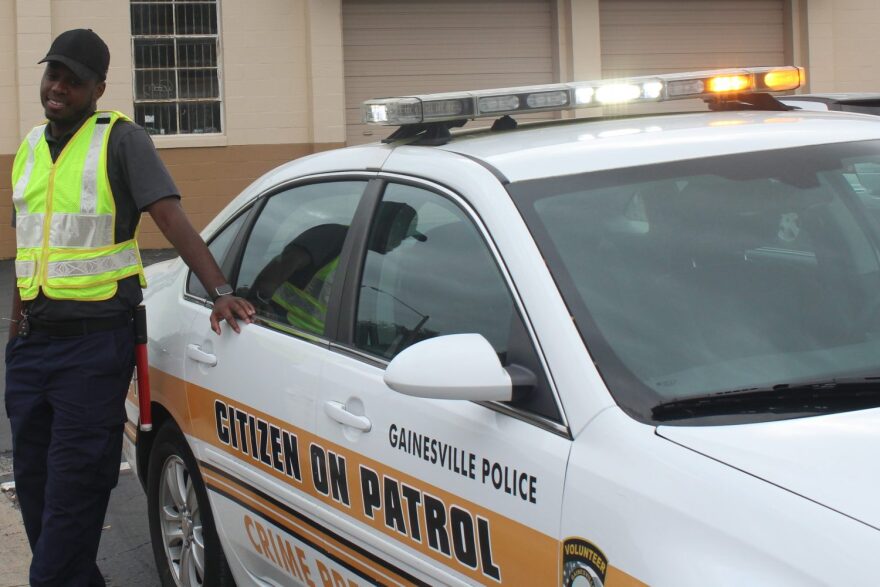Jhody Polk came to hear about the changes that may be coming to Gainesville, but she ended up recommending some of her own.
The city's Black on Black Crime Task Force met Wednesday evening at Gainesville Police Department headquarters to discuss ways to reduce arrests in the city.
This was one of the monthly meetings for the task force, but this meeting was different. Two representatives from the National League of Cities (NLC) came to speak to the community about creating alternatives to arrests and jail time.
“Here, the black population is overrepresented in both the arrest population as well as jail, and so there is definitely a component of focusing on reducing the racial disparities in the arrest decisions and jailing decisions,” said Laura Furr, the Program Manager for Justice Reform and Youth Engagement for the NLC.
In the speech, Furr gave different examples of changes from other communities that Gainesville could implement. One of them was law enforcement officers getting new tools to take people having drug reactions to a treatment facility instead of jail. This is called "the drop-off method."
“The primary purpose really is to make sure that we’re using jail to protect public safety and everyone else is going into services that really meet their needs,” said Furr.
The meeting room consisted of community leaders, law enforcement, politicians, and regular people living in Gainesville. All of them are part of the task force.
“This is bringing to Gainesville a discussion that is underway, and many communities across the nation instigated by the McArthur Foundation through what it calls its Safety and Justice Challenge,” said Andrew O. Moore, Director of Youth and Young Adult Connections for the NLC, “they’re asking cities and counties to consider what they can do to contribute to reducing mass incarceration.”
Moore and Furr talked about models and approaches they were seeing in other cities that Gainesville could consider using. To hear the opinions of the community, they gave those who wanted to speak a chance to share their ideas.
“We don’t want to make these programs in isolation, in a locked room with just the sheriff’s office or the court office,” said Moore, “Those voices are important, but we need community support for this to work.”
Rosa B. Williams, the founder of the task force, spoke at the meeting as well.
“People need to hear this conversation today because, you know, we have so many young people getting into problems,” said Williams.
On her turn, she spoke strongly about parental involvement in youth programs.
“I want to have this program here. It could help keep the young people off the streets and give them a second chance,” she said.
Williams said the task force was created more than 30 years ago. Once a month the group comes together to discuss recent changes, community announcements, and the neighborhood watch.
Polk, a Gainesville native, also spoke at the meeting about her experiences.
“It’s not about getting more resources,” Polk said. “It’s how to get people to take advantage of the resources that are already available.”
During the meeting, Polk spoke of her own life as a former inmate. She was incarcerated for more than eight years and released in 2014. She said it's difficult to find employment, housing, and to face judgment for past crimes.
“How do we empower people," she asked, "to get past that mental and spiritual incarceration that leads to physical incarceration?”



